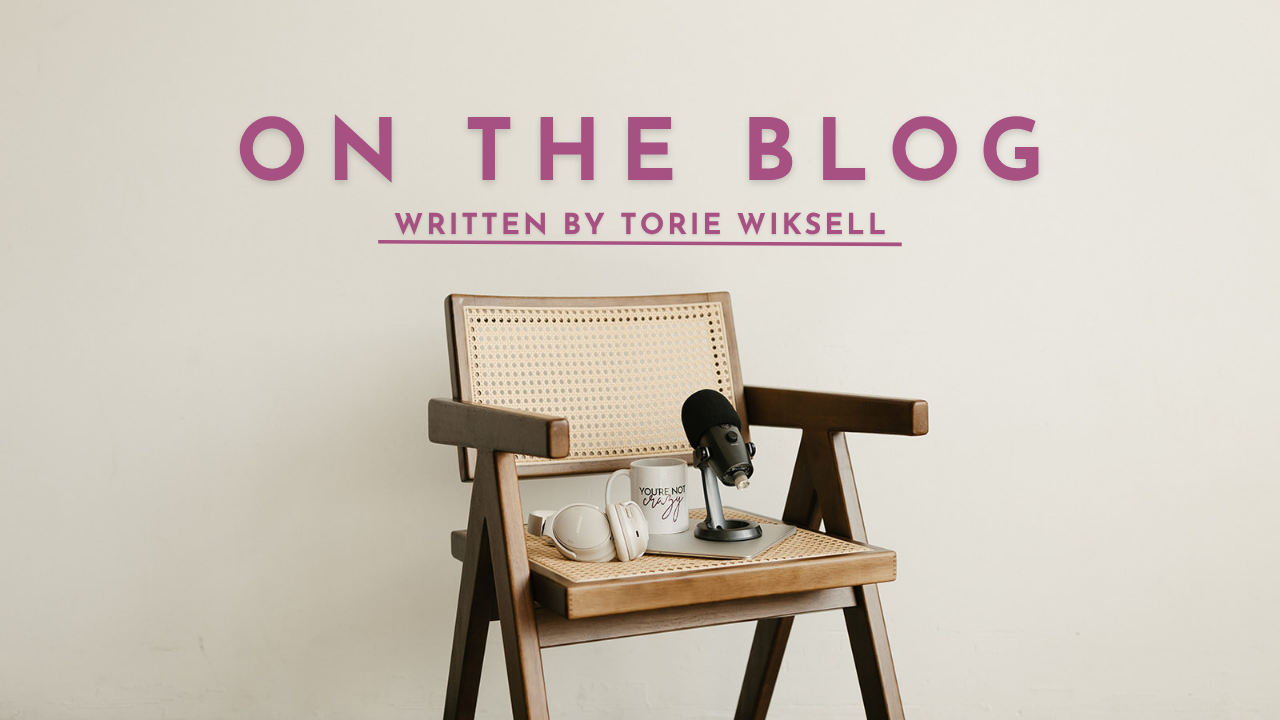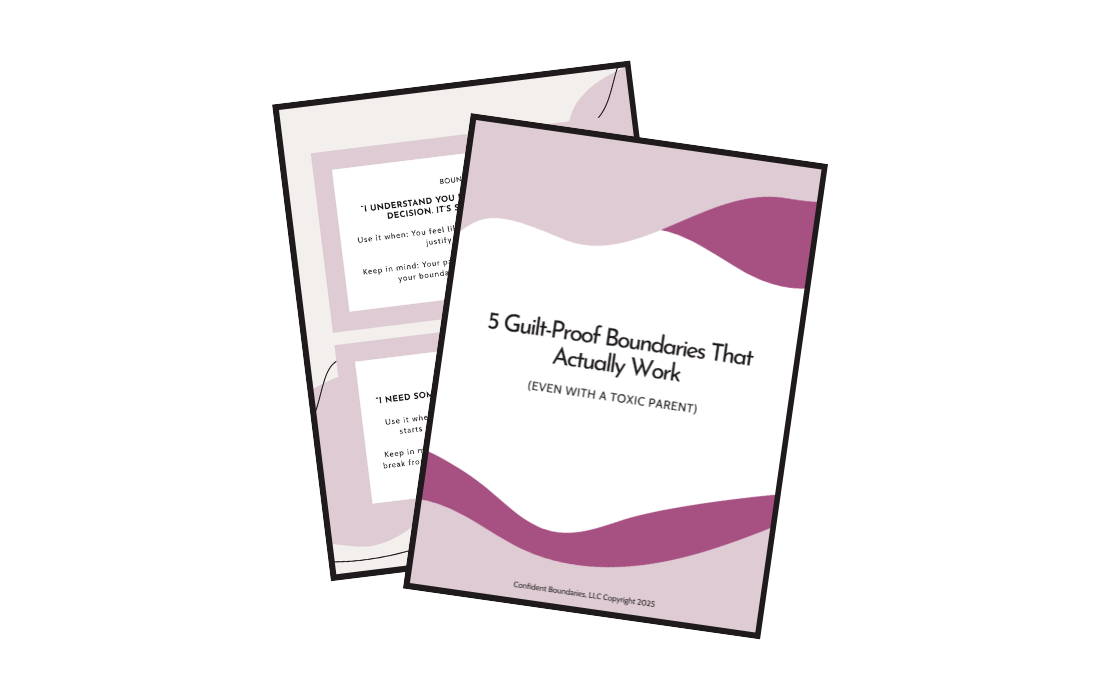
10 Steps to Heal from a BPD or Narcissistic Parent
If you grew up in a dysfunctional family with emotionally immature parents—especially ones with borderline or narcissistic traits—you probably learned early on how to survive by disconnecting from yourself.
You became the peacekeeper.
The emotional sponge.
The one who kept things calm so no one exploded.
And now? You might feel stuck in cycles of guilt, self-doubt, and anxiety—especially when you think about setting boundaries with your parents or trying to build healthier relationships of your own.
If that sounds familiar, I want to say this as clearly as I can:
You are not the problem. You were emotionally manipulated.
And yes—you can heal.
Here are 10 practical, powerful steps to begin untangling yourself from the chaos, so you can start reclaiming your voice, your peace, and your life.
1. Learn to Recognize Emotional Abuse
When you're raised by emotionally immature parents, emotional abuse often gets repackaged as “tough love,” “discipline,” or “just how our family talks.”
But guilt-tripping, gaslighting, triangulation, and constant blame-shifting are not love.
They’re manipulation.
Naming the abuse for what it is is the first step toward healing. It helps you release the shame that never should’ve been yours to carry in the first place.
2. Learn What Healthy Actually Looks Like
If your baseline was chaos, emotional withdrawal, or control masked as care—then actual emotional safety might feel foreign.
Real love is calm.
It’s reciprocal.
It’s safe enough to rest in.
When you stop trying to earn love through perfection or performance, you create space for connection that doesn’t come with a side of anxiety.
3. Set Boundaries That Actually Protect You
Setting boundaries with a toxic parent isn’t easy—but it is necessary.
It might mean:
-
Ending a phone call when they start yelling
-
Saying “I’m not discussing that with you” when they try to provoke you
-
Limiting contact—or going no contact altogether
You are not cruel for protecting your peace.
You are not selfish for drawing a line.
You are allowed to stop abandoning yourself to maintain the illusion of family.
4. Find People Who Get It
One of the hardest parts of dealing with toxic parents is how isolating it can feel.
Well-meaning people might say:
-
“But they’re your parents…”
-
“You only get one mom…”
-
“Maybe they didn’t mean it that way.”
You don’t need that kind of invalidation.
You need people who look at you and say, “Same.”
Support from those who truly understand—whether that’s a trauma-informed therapist, safe friendships, or a space like the Confident Boundaries Membership—is everything.
5. Practice Self-Compassion (Even When It Feels Cringe)
If your parents taught you that love is conditional, kindness might feel like something you have to earn.
But you’re not here to perform for compassion. You’re here to receive it. Especially from yourself.
Self-compassion isn’t “letting yourself off the hook.” Just like how beating yourself doesn't actually make things easier.
6. Get Clear on What You Value
When you’ve spent your entire life walking on eggshells, it’s easy to lose track of who you are.
So let’s start there:
What do you care about?
What do you believe in?
What lights you up, pisses you off, or makes you feel most like yourself?
Healing means getting to know your own voice again—and then letting it guide your choices.
7. Let Go of Responsibility for Everyone Else’s Emotions
If you’ve been the emotional caretaker in your dysfunctional family, you probably feel responsible for other people’s moods.
Spoiler: You’re not.
You are not in charge of making your parent feel better.
You are not responsible for their pain, their projections, or their tantrums.
You’re allowed to let people be disappointed, upset, or confused—without fixing it.
Their emotions are theirs to manage.
Yours are yours to protect.
8. Learn to Sit with Discomfort Without Fixing It
When you grow up with emotionally unpredictable parents, you get really good at avoiding conflict.
But discomfort isn’t danger.
It’s okay to feel anxious when you set a boundary.
It’s okay to feel grief when you step back.
You can feel those feelings without backtracking, over-explaining, or abandoning yourself.
You can ride the wave. It won’t drown you.
9. Reclaim Who You Are Outside the Chaos
You are not just the fixer, the go-between, or the one who “keeps the peace.”
You are not your parent’s emotional support animal.
You are not their therapist.
You are not their do-over.
You’re a whole person, with dreams and limits and desires of your own.
It’s time to explore what those are—without asking for their permission to do so.
10. Know That You Deserve a Healthy Life
Let me say this plainly:
You are not too much.
You are not broken.
You are not doomed to repeat what you've endured.
You deserve a life where peace isn’t something you have to earn.
Final Thoughts
Healing from a BPD or narcissistic parent is not a straight line.
Some days you’ll feel grounded and clear.
Other days you’ll feel like a puddle on the floor.
Both are normal.
Both are part of the process.
Every time you choose truth over fantasy, boundaries over guilt, or self-compassion over shame—you’re healing.
You’re not the problem.
You’re the one breaking the cycle.
And that’s something to be really proud of.
You’re Not Crazy.
But you might have been gaslit by your parents.
Learn how to recognize the signs—and start rebuilding trust in yourself.
I hate SPAM. I will never sell your information, for any reason.



